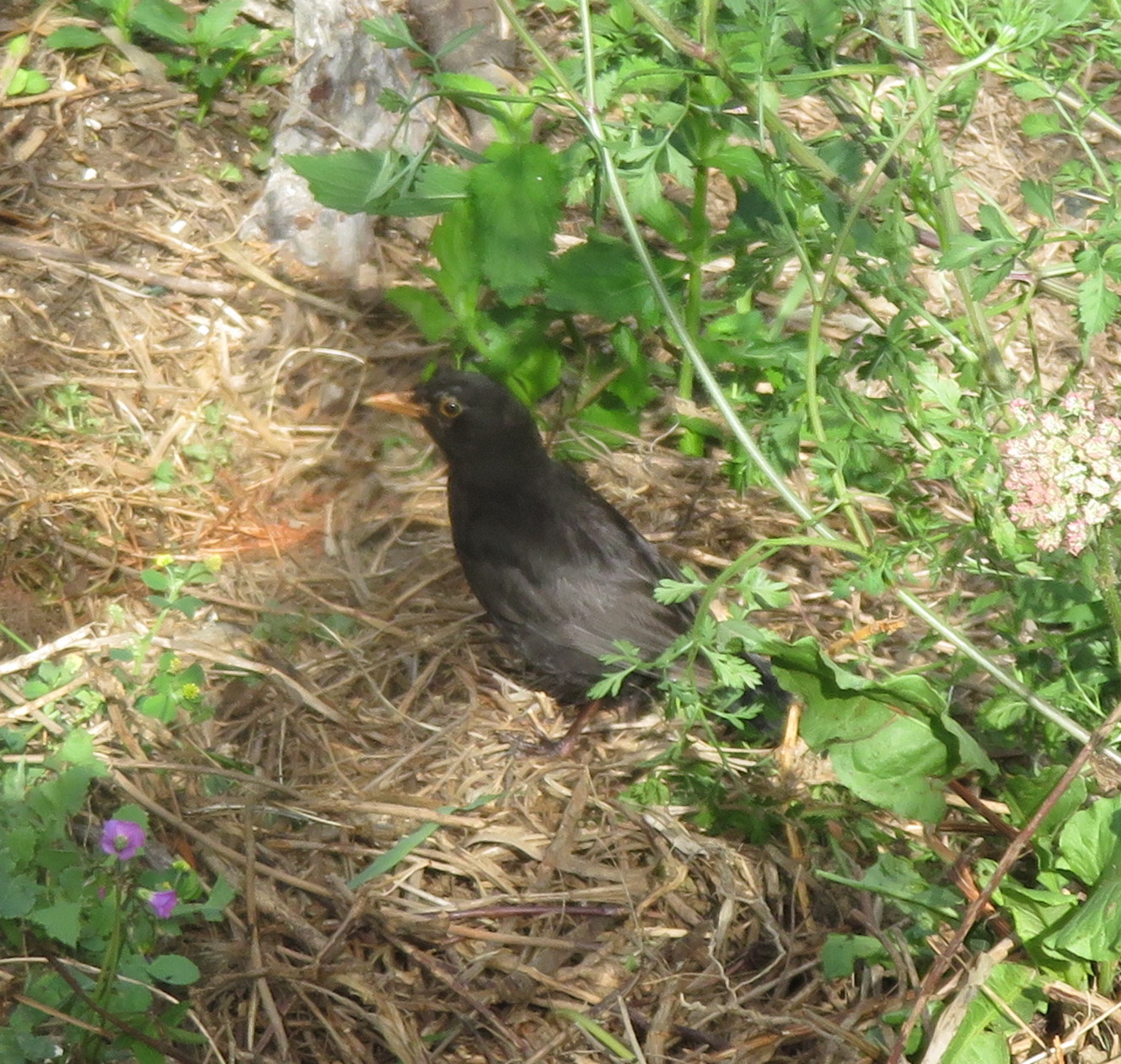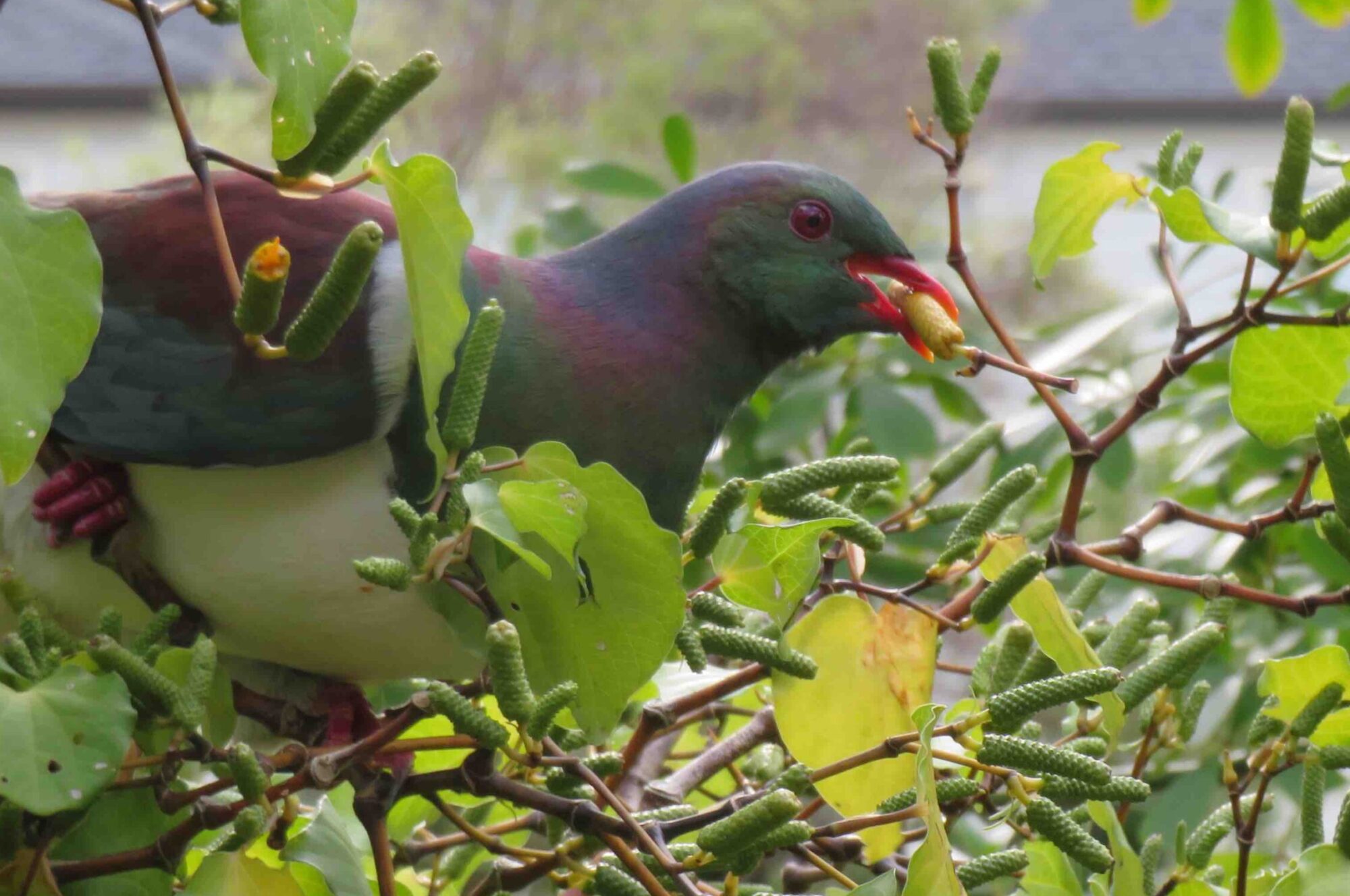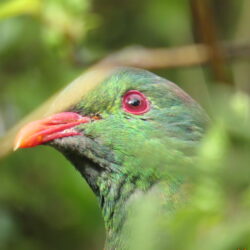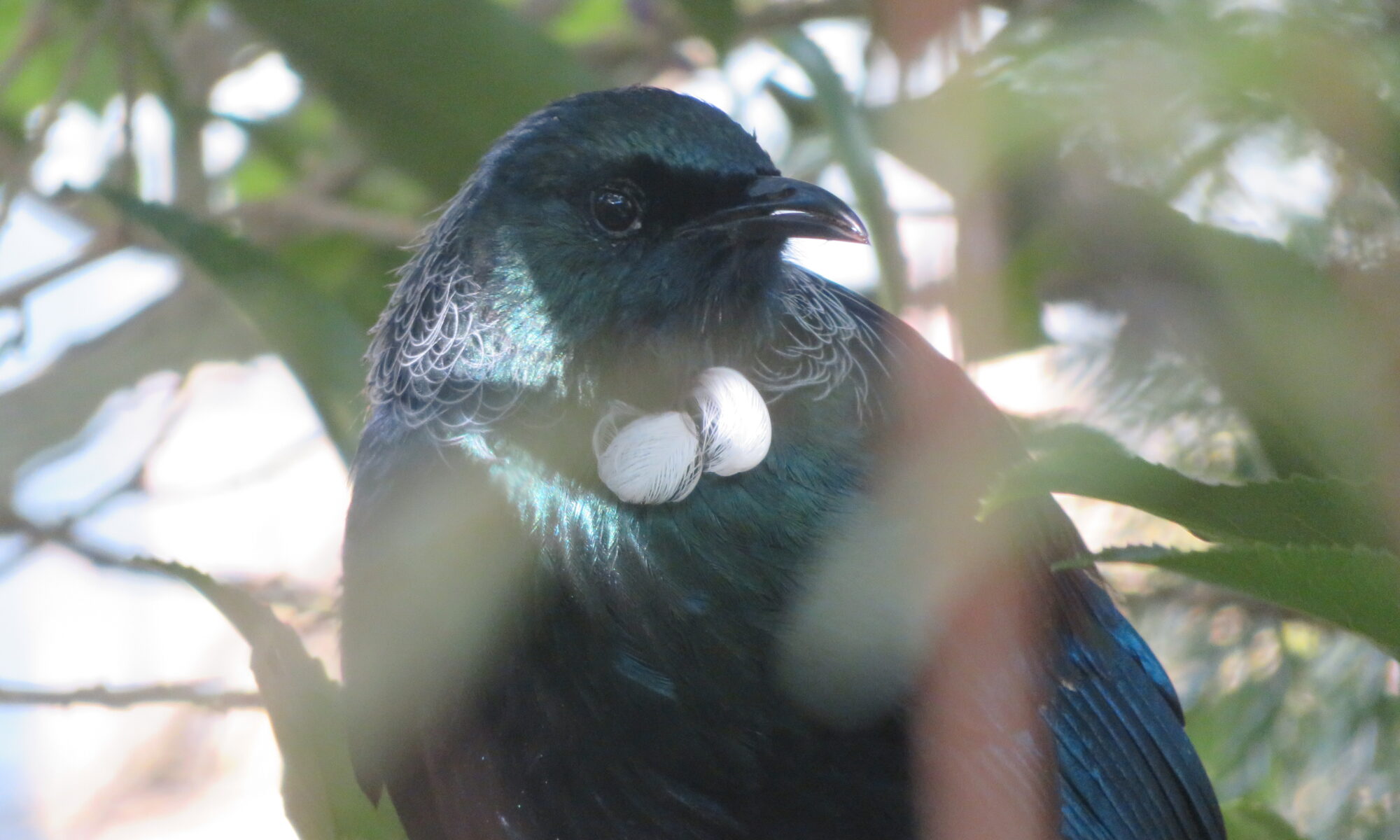Even small gardens can provide vital nutrition and tree roosting for visiting birds, including many native species. Eskdale Forest in Birkdale/Birkenhead/Glenfield is a major kereru breeding site, and also hosts tui, bellbird. grey warbler, shining cockoo, waxeyes, fantails and more.
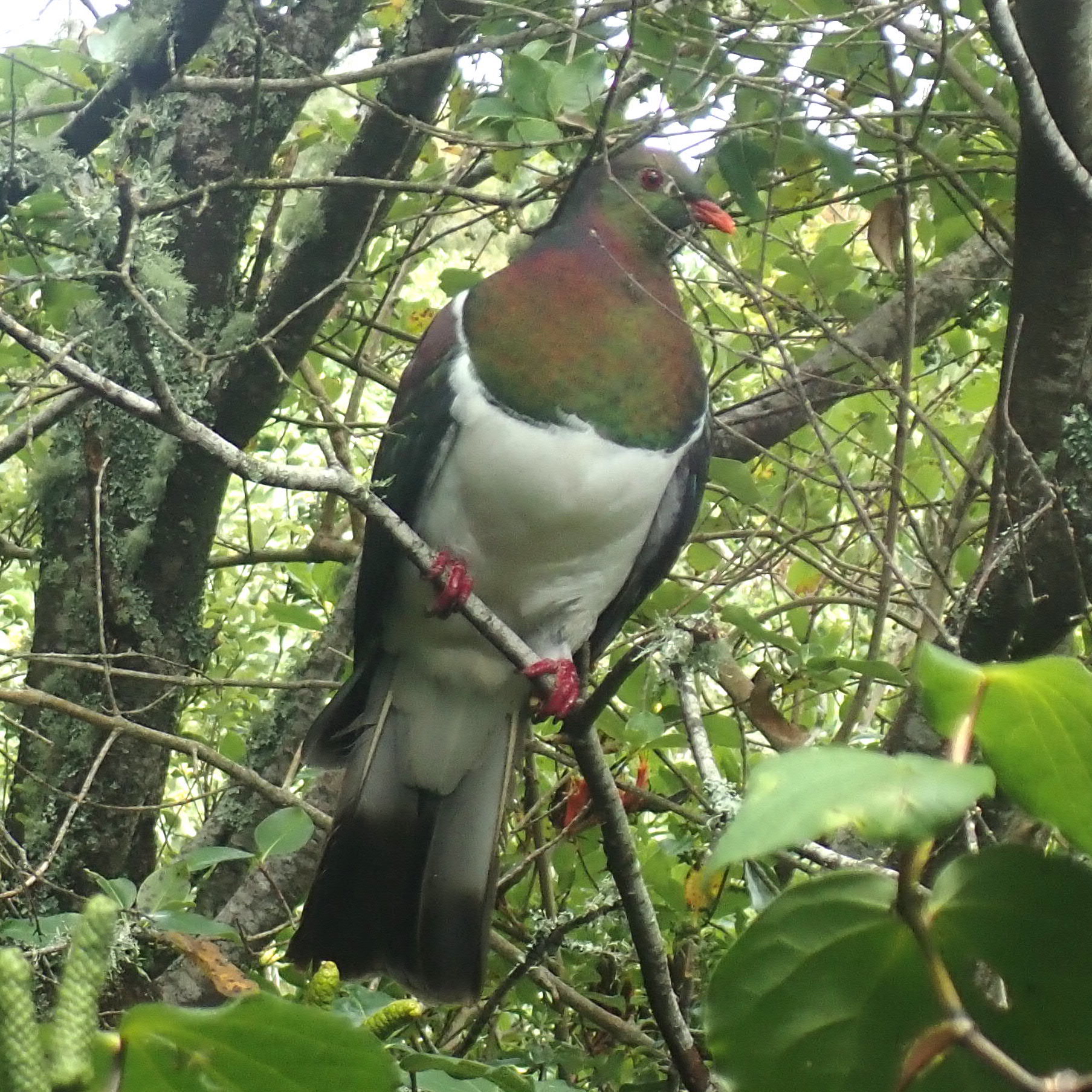
Kereru perching in kohuhu planted in 2002 beside a concrete driveway on an infill section in Glenfield.
Kereru will fly up to 20km daily to a good source of food.
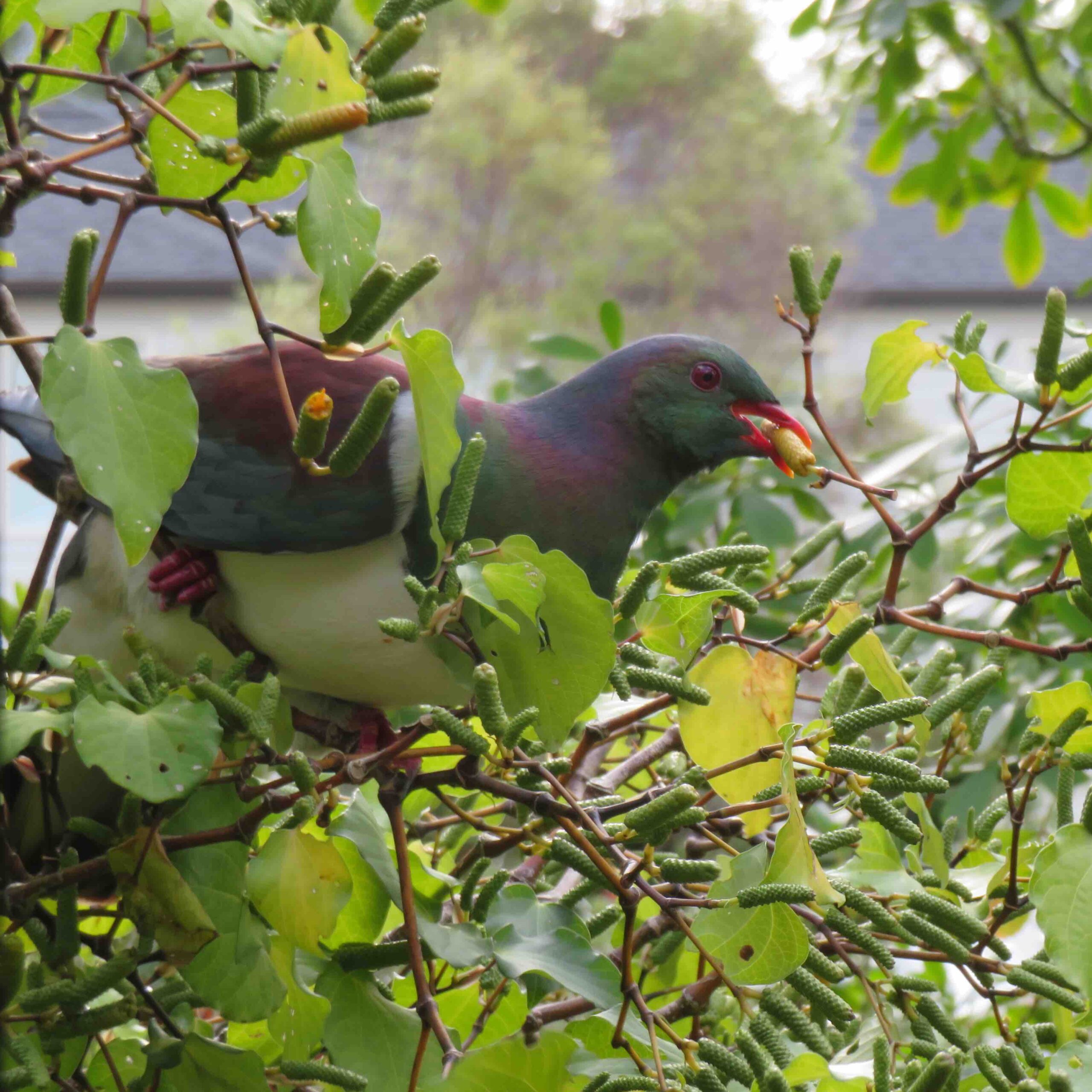
This kereru is a regular visitor to a small infill housing section in Glenfield, where it feeds many times a day on the fruit of a small kawakawa tree planted beside the front door of a small house surrounded by larger trees. Sometimes they visit as a pair, and one year the pair was accompanied by a fully grown “chick”, or juvenile.
When the kawakawa fruit are over for the season, they sometimes perch and feed in the taller cabbage trees (ti kouka/Cordyline australis) in a narrow strip of soil between driveway and fence.
Many gardens are visited by tui during the short season when harakeke flowers are open, but they also come to bathe or quench their thirst.
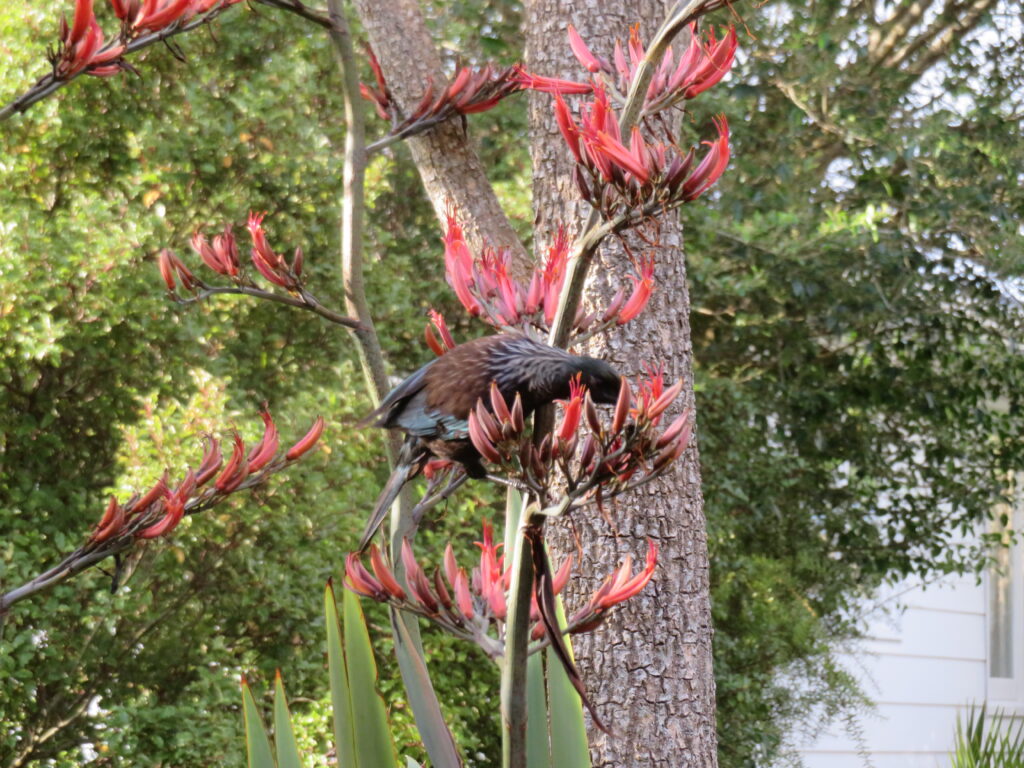
In prolonged dry weather a birdbath, placed out of reach of cats and filled with freshwater every day or so, may be vital to their survival, as being driven to the ground by thirst exposes birds to predators, cars, and other hazards.
These tui became summer-long visitors, and then residents, when a safe water dish was placed high on a water tank. Tui are very fond of bathing, especially in hot dry weather, and compete with one another for the “I’m next” position on the perch over this water dish.
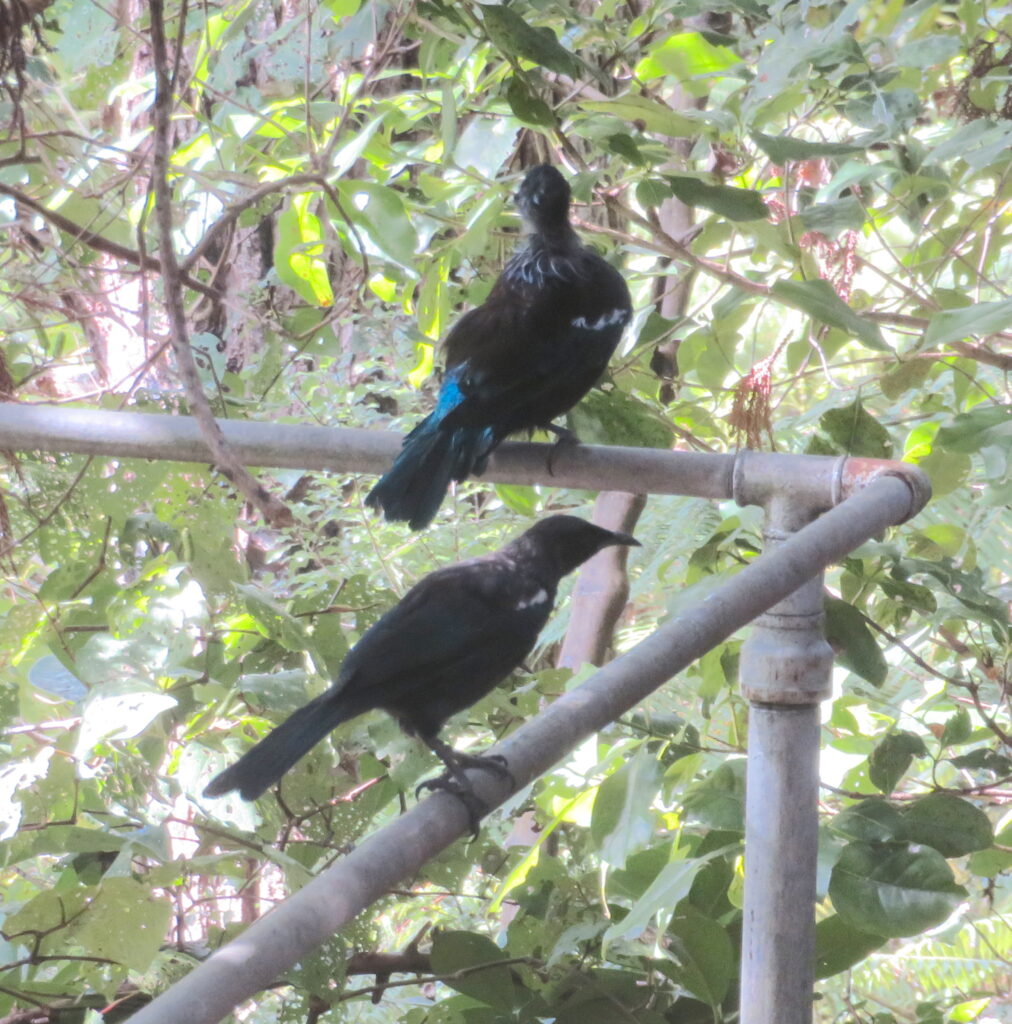
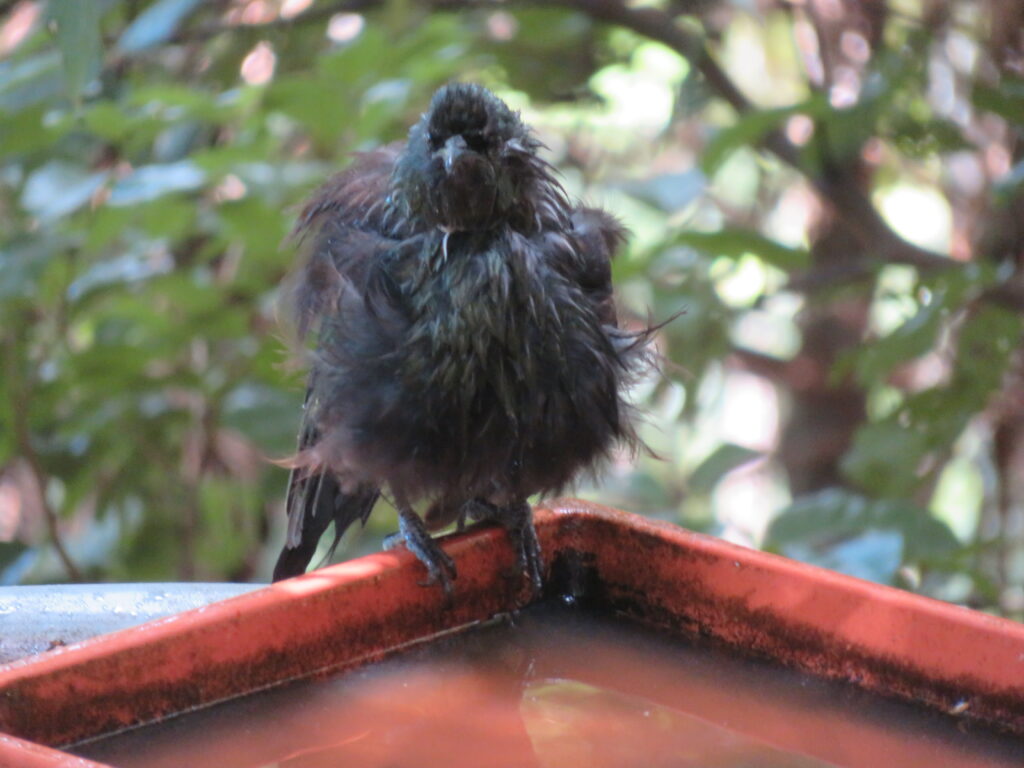
This juvenile tui is enjoying one of its first baths.
The dish needs refilling frequently as tui splash so much water out of the dish.
Their feathers thoroughly wetted in the birdbath, the tui preen themselves in the tree overhead
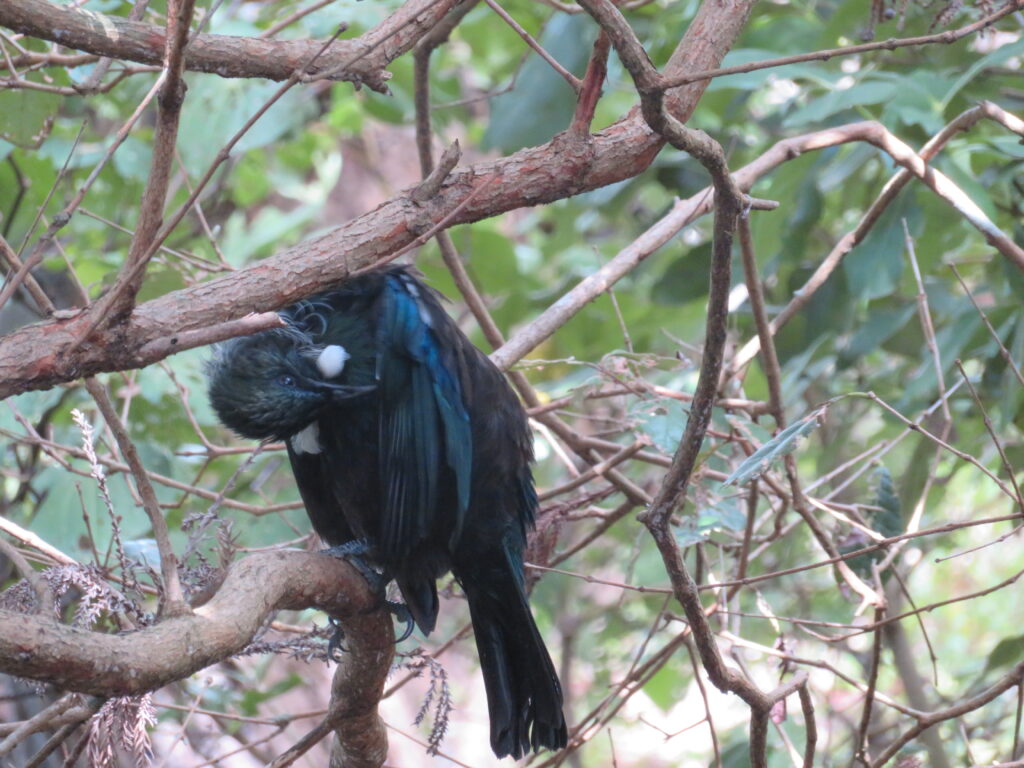
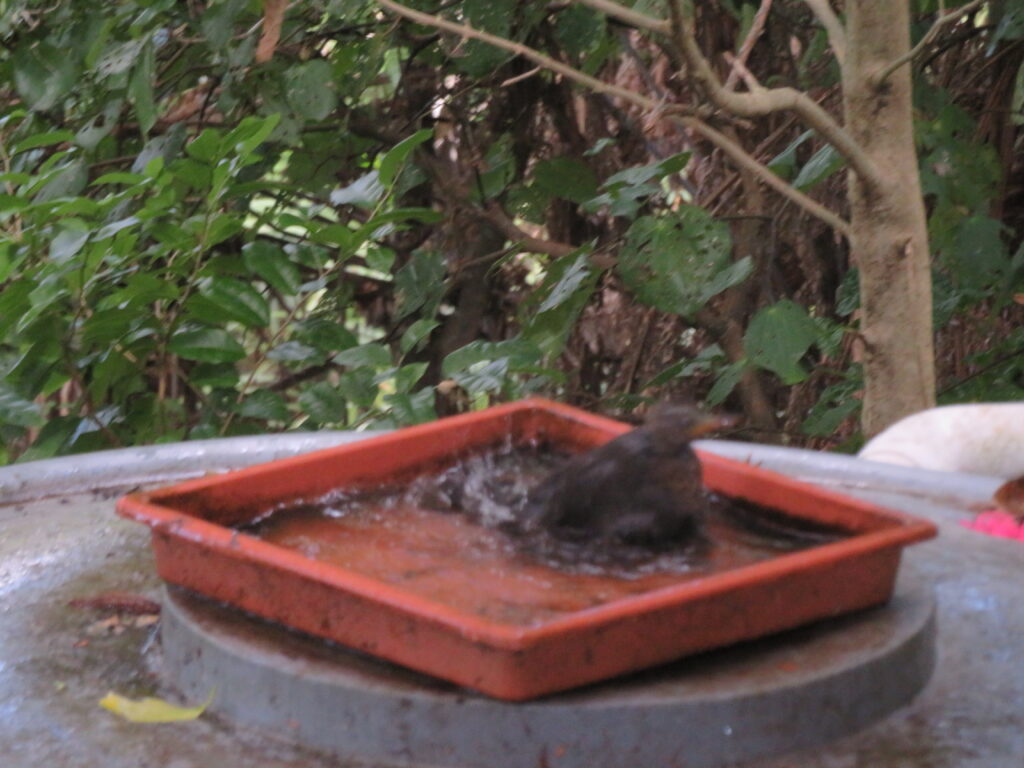
Since a lot of tui became resident in this garden, the blackbirds’ baths now have to wait till the tui are done.
The gentle sounds of blackbirds bathing are easily distinguished from the noisy and exuberant splashing of the tui.
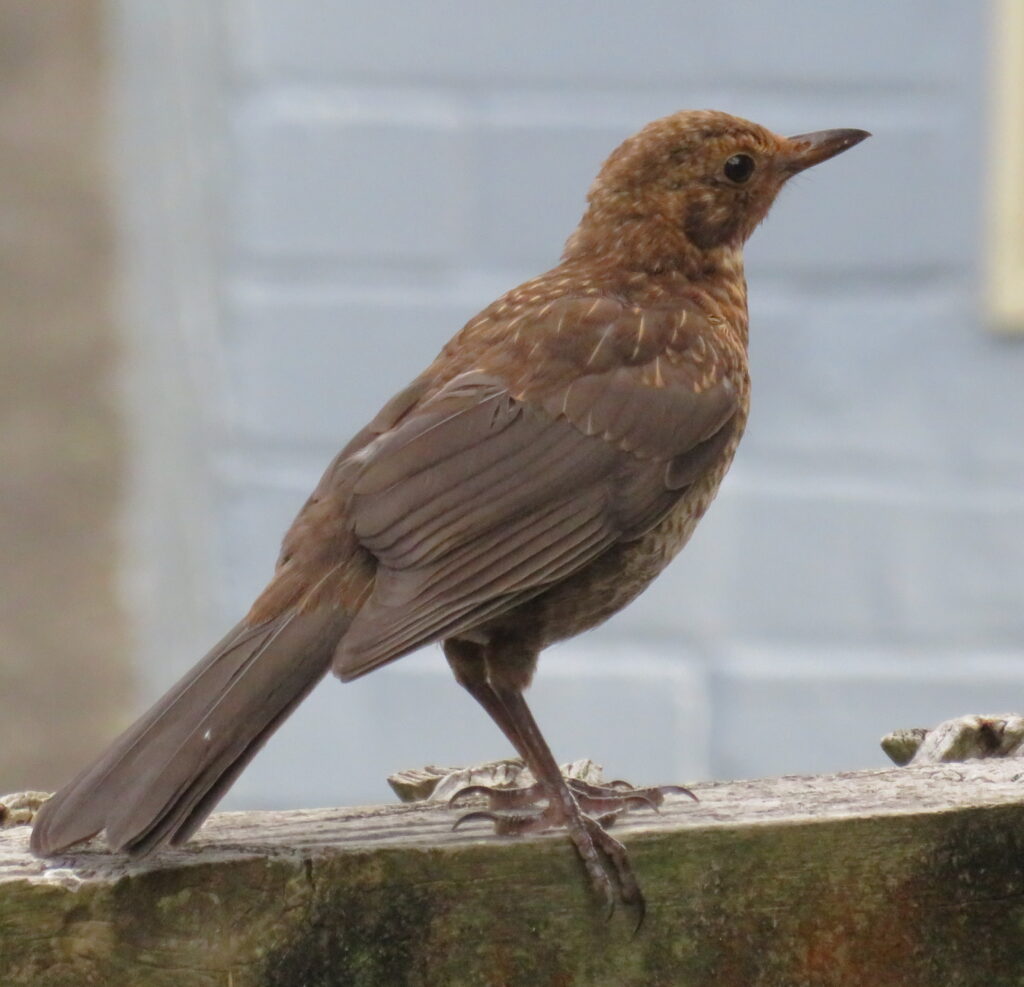
Blackbirds sing beautifully, and make good gardening companions. This juvenile is perched on a garden fence, possibly waiting for parents to return with food.
Blackbirds also forage the disturbed ground of handweeding projects, such as here in Gahnia Grove, Eskdale Reserve.
